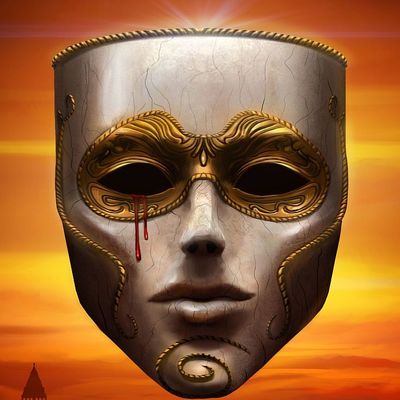
CHAPTER ONE: Annos Dormi
"Death is nothing to us, for when we are, death is not, and when death is, we are not."
— Epicurus, Letter to Menoeceus
The Abbey Library of Saint Gallen was a cathedral of whispers. Its vaulted ceilings held not just the weight of stone, but the mass of centuries—manuscripts breathing in the dark, parchment exhaling dust. Brother Lukas Sterchi, the youngest among the monastery’s librarians, moved through the rows with the reverence of a man walking through a graveyard of time. His fingers, pale and ink-stained, traced the spines of codices as if reading their histories through touch alone.
It was on the third day of Lent, in the brittle light of a Swiss winter morning, that he found it.
Tucked between a crumbling copy of Isidore’s Etymologiae and an unremarkable psalter, there was a folio bound in ancient, cracking leather, its spine entirely unmarked. No catalog entry, no mention in the library’s meticulous registers. It was as if the book had slipped between the shelves like a shadow between seconds.
Lukas drew it out with care. The cover bore no title, only a faded symbol on the front—a circle quartered by a cross, its edges worn soft by time. When he opened it, the dried-out glue of the fragile pages crackled in protest. The script was Carolingian minuscule, precise and sharp, but the words made little sense at first glance.
Anno Domini 914. Annos dormi.
Lukas frowned. The phrasing was odd, almost heretical. “Annos dormi.” The years lie? What could that mean? He carefully turned the page, translating the old Latin in his head without even thinking about it.
What men today call the seventh and eighth centuries are a phantom epoch. The years from 666 to 911 were never lived by Man. They are a scribe’s invention, a fiction woven into the chronicles by those who ever seek to bend time to their implacable will.
A chill prickled the back of his neck. He knew, of course, of the debates among historians—discrepancies in dating, gaps in records, the strange repetitions in certain chronicles, the ten days that vanished with the change to the Gregorian Calendar in 1582. But this was no scholarly hypothesis. This was a confession.
The next pages were filled with tables—astronomical observations, lunar cycles, lists of eclipses that did not align with the accepted calendar. Calculations in the margins, dense with abbreviations, pointed to deliberate falsifications. And then, the name that made Lukas’s breath catch:
Gregorius, who forged Time.
Gregory. A pope? A scribe? A phantom?
A voice behind him shattered the silence.
“Brother Lukas.”
He snapped the book shut, but not before the senior librarian, Father Umbertus, had seen the symbol on its cover. The old man’s face, usually as composed as the marble saints in the cloister, twisted in something like fear.
“Where did you find that?”
Lukas hesitated. “Between Isidore and the psalter.”
Umbertus reached for it, his fingers trembling. “This is not for you, my son.”
“But Father, it speaks of—”
“Silence!” The librarian’s vehemence shocked him into compliance. Umbertus clutched the book to his chest as if it were a living thing that might escape. “There are truths that men are not meant to know. There are secrets that are better left undisturbed. Go now, my son. Pray for wisdom... and discretion.”
That night, Lukas lay awake, the words burning behind his eyelids like a brand.
The years from 666 to 911 were never lived by Man.
Could it possibly be true? And if it was true—what else had been erased?
And more importantly, by whom?
And why?


















